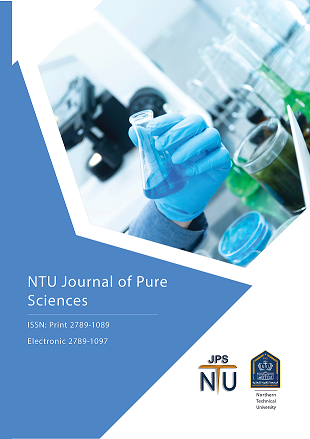Evaluation of well water in the site Technical Agricultural College - Mosul for its validity in the growth and yield of three varieties of the cotton plant (Gossypium hirsutum L.)
DOI:
https://doi.org/10.56286/ntujps.v1i1.136Keywords:
water tail, cotton varieties, chemical analysis, sulfate effect, sodium effectAbstract
Groundwater is one of the most important sources of water storage in the world, which is used as an alternative when rains are scarce and the drainage of the Tigris River is low. Wells have been dug in the site Technical Agricultural College - Mosul (Rashidiya area) and used for various purposes without prior planning. Therefore, it is necessary to conduct a study on the quality of groundwater in the Agricultural Technical College to demonstrate the validity of its use for agriculture, especially the cotton plant within the fields of the Cotton Research Unit. 4 wells were selected in the study area, which was used to irrigate the cultivation of 3 varieties of the cotton plant (1. Ashore V1, 2. Lashata V2, 3.Coker 310 V3) Water samples were collected from the wells and some on-site tests were conducted for them, and then the physical examinations were performed, represented by ( their electrical conductivity, refractive index, surface tension, density and viscosity) as well as the chemical tests that included (acidic function, total dissolved salts, total hardness, and positive ions such as calcium, magnesium, sodium, and ions) The negative results represented by chlorides and sulfates in them. The results showed that there are differences between the wells in all the measured characteristics due to the difference in the geological nature between the wells because some of them contain gypsum and lime components that are soluble in water. Plant height, number of fruiting branches, number of blooming bolls and total yield of cotton blossom per unit area (kg/hectare).
Downloads
Downloads
Published
Issue
Section
License
This work is licensed under a Creative Commons Attribution 4.0 International License (CC BY 4.0), which permits unrestricted use, distribution, and reproduction in any medium, provided the original work is properly cited.









